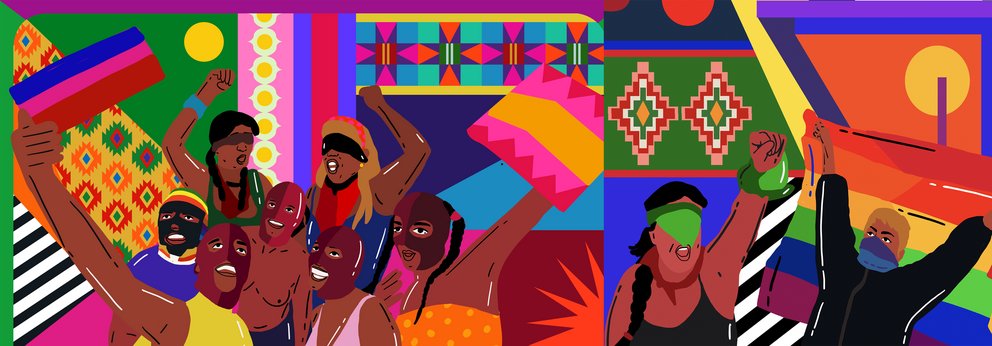Festival with Sara A. Abbas, Parvin Ardalan, Simone Dede Ayivi, Camille Barbagallo, Priya Basil, Sandra Bello, Carolina Bianchi, Pau(la) Chaves Bonilla, Lorena Cabnal, Anna Carastathis, Carmen Cariño, Luci Cavallero, Chocolate Remix, Christina Clemm, Andrea Dip, Dilar Dirik, Ebow, Firoozeh Farvardin, Véronica Gago, María Galindo, Denise Garcia Bergt, Dalia Gebrial, Jule Govrin, Encarnación Gutiérrez-Rodríguez, Sabine Hark, Houseclub / Qzeng Productions, Becka Hudson, Nesrine Jelalia, Fatemeh Karimi, İida Käyhkö, LASTESIS, Agata Anna Lisiak, Ewa Majewska, Erica Malunguinho, María do Mar Castro Varela, Barbara Marcel, Zethu Matebeni, Lina Meruane, Miriam Nobre, Camila Nobrega, Bahar Oghalai, Marina Otero, Peira and neighbors from Mehringplatz, Eva von Redecker, Somayeh Rostampour, Bafta Sarbo, Elif Sarican, Evren Savcı, Jamile da Silva e Silva, Rub(én) Solís Mecalco, Myrto Tsilimpounidi, Nazan Üstündağ, Louise Wagner, Himmat Zoubi and organisations like Casa Kuà, CENÎ – Kurdisches Frauenbüro für Frieden e.V., Feminist Autonomous Centre for Research Greece, Feminists4jina, Initiative Schwarze Menschen in Deutschland Bund e.V., International Women* Space, Jineoloji, medico international e.V., Missy Magazine, S.U.S.I. Interkulturelles Frauenzentrum, Transnational Feminism, Solidarity, and Social Justice, TranStyX: Tunisian Queer Art Project a. o.
Feminist movements around the world are leading the fights against capitalist appropriation, authoritarianism, and (neo-)colonialism. Unlike a liberal predominant Western feminist agenda, they do not reduce their demand to a mere equal percentage of women* in a current toxic way of life. By viewing patriarchy as systemically interwoven with neoliberal politics, ecological destruction, and state violence, they are reframing the feminist project as a driver for political transformation and structural change. Now, in an artistic and discursive way, HAU Hebbel am Ufer is taking up these approaches: both through an international gathering to connect prominent feminists and diasporic communities from Iran, Kurdistan, North Africa, and Latin America; and through performances, dance, film, concerts, and more from Argentina, Chile, and Brazil.


